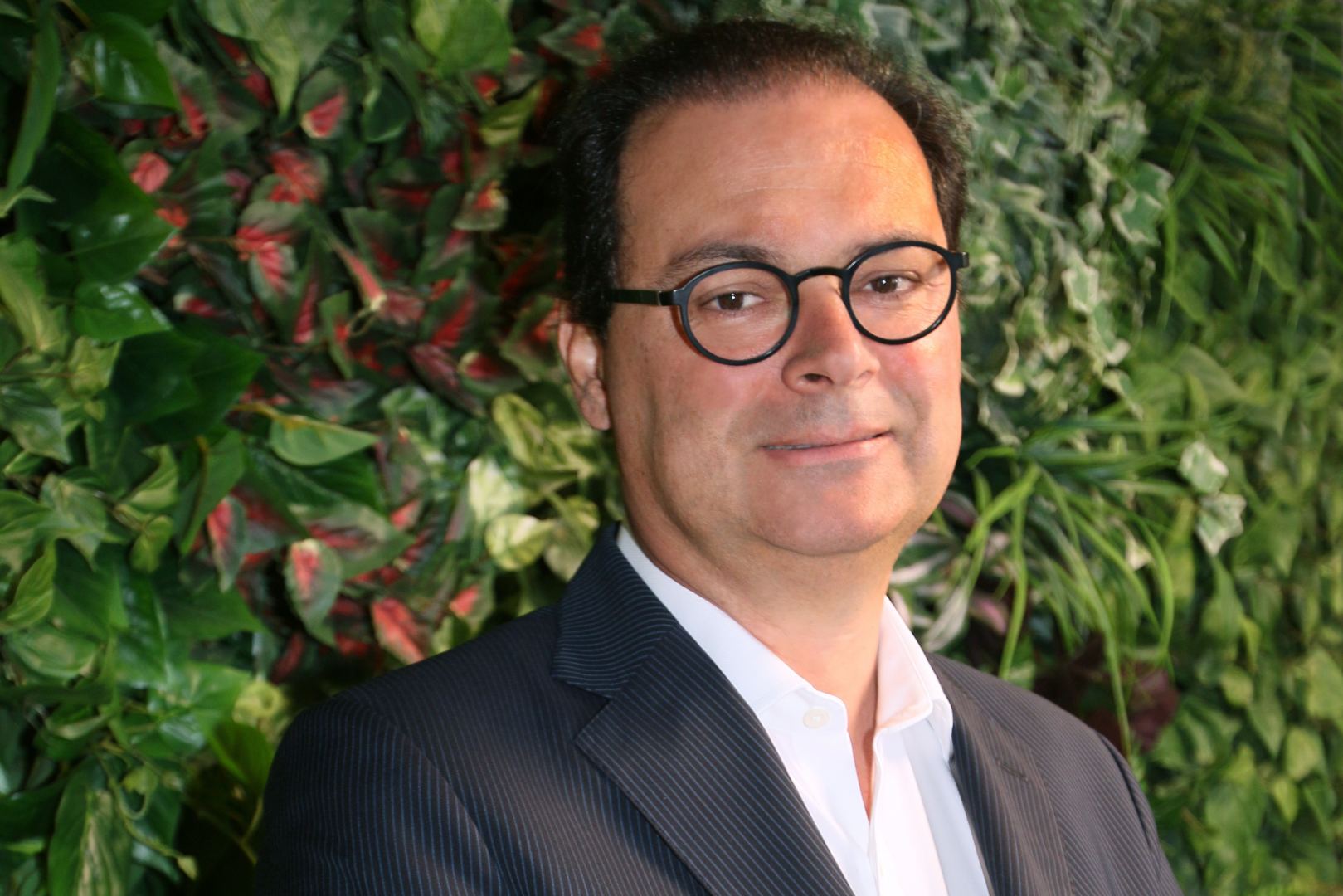BNI Europa the Portuguese bank challenging traditional banking
Everything’s coming up roses for BNI Europa, one of Europe’s most exciting and innovative new challenger banks. With 18 partnerships with fintechs around Europe, the Portuguese digital bank is turning traditional banking on its head
Traditional banks are today facing a new breed of competitors: challenger banks. These are banks that don’t have branches, use digital platforms and new technology to provide financial services. They are almost exclusively digital, free from the constraints of legacy systems and high overhead costs. BNI Europa is the latest challenger bank in Europe, it is Portuguese and it is getting noticed.
In April, BNI Europa reported profits of €2.3 million for 2017. Just one year before, it suffered losses of €2 million after cutting ties with the Angolan bank which had owned it, Banco de Negócios Internacional (BNI). Since then, the value of the bank’s product has almost quintupled to €13 million while assets have grown by 41% to €509 million. Deposits have increased by 16% to €305 million and earned it the plaudit of “one of Portugal’s banks that best rewards depositors.”
Its own funds closed 2017 up, at €23 million, while the bank’s solvency ratio was 13%, comfortably above the regulatory limit. It has won several awards as the “Most Innovative Bank in Portugal 2017” from International Finance Magazine, “Best Digital Bank in Portugal 2017” from Global Banking and Finance Review Magazine and “Bank of the Year 2017” from The European. This year, the bank has been concentrating on innovative services, particularly in partnerships with fintech companies (digital platforms in financial services). “We are not a universal bank,” says BNI Europa CEO, Pedro Pinto Coelho, who admits it is difficult to talk about market shares. “Right now we have a digital platform, we do transactional banking, but most of our clients have come to us seeking a better service and higher yielding deposits.”
Partnerships with fintechs
BNI Europa went in for partnerships with innovative European and UK online financial services entities offering specific products in different segments precisely because it could not compete directly with the big clearing banks, which offer these services under one umbrella. What looked to be a disadvantage ended up as the exact opposite as BNI Europa could cut costs and give clients a better deal as well as raising its own margins. Pedro Pinto Coelho explains: “When I joined the bank in 2015, BNI Europa was effectively playing a role – cross-selling between Angola and Portugal as a subsidiary of an Angolan bank and corporate and private banking. They realised it was very difficult, partly because the economy was doing badly in both countries, and because the larger, established banks in Portugal enjoyed lower funding costs.
“We just didn’t have that depth of product, we weren’t competitive for corporates, and we were ending up with transactions other banks didn’t want to finance,” he recalls. Realising BNI Europa had to change to survive, it innovated by building partnerships with fintech entities. “We were fortunate there was already a fintech ecosystem developing in Europe, starting with the UK and then across continental Europe as well, which allowed us to grow much faster than by using our own means,” he remembers. To give an example, BNI Europa needed to grow its funding sheet on the balance side and not depend on the Angolan parent company with deposits in Portugal.
“We were being used by BNI in Angola as a corresponding bank so, in order to avoid dependency, we started raising deposits in Portugal,” says Pedro Pinto Coelho. “Portugal is a small country, it takes time for people to know the bank and start opening accounts. Here, we have about 5,000 accounts but, overall, we have 15,000. We have €25 million capital now and our overall asset base of the bank stands at €500 million.”

A Portuguese bank with an international reach
The second step in diversifying funding was to raise deposits overseas through a partnership with a fintech in Berlin, where BNI Europa could raise term deposits abroad in Germany, Holland and Austria. Pedro Pinto Coelho continues: “These markets are bigger and clients are used to having term deposits instead of playing the capital markets.
“Clients started putting money in the bank and, as there is a €100,000 Bank of Portugal guarantee on deposits, they can easily diversify across several banks in Europe.” This meant that BNI Europa increased and diversified its deposit base and grew the balance sheet, diversifying funding and then buying loans abroad. “It took time. We couldn’t afford to just eat up the capital the bank had, so we managed to grow the balance sheet quickly, thanks to this external ecosystem while, at the same time, we invested in Portuguese startups and helped them grow,” he explains.
Innovative products
In terms of innovative products and consumer credit, BNI Europa offers different brands such as “Puzzle” – the first fully-digitalised disbursement process -, credit consolidation and a special credit card with installment payments at point-of-sale (for example, purchase payment splitting in three payments). As a consequence of a bold business strategy and achieving growth targets, BNI Europa attracted the interest of capital investors. The Angolan bank Banco de Negócios International, SA, its main shareholder, signed a contract with a foreign investor to sell the majority of the capital held in Banco BNI Europa.
“Because we are a small bank with limited resources, it would be difficult to do everything ourselves, which is why we partner with other fintech entities,” he adds, giving the example of the Belgian company Edebex with which BNI acts as investors buying invoices from Belgium, Luxembourg and France. Invoice discounting, like factoring, is a financial service that can release funds tied up in companies’ unpaid invoices, whereby for a fee, the company/companies get the cash flow now on the invoices from a lender (in this case BNI Europa) in return for paying a percentage commission. The credit lender agrees to advance the money against outstanding debtor balances. “We do the marketing here in Portugal through our channels, they do the credit analysis and servicing and we act as the final investor which buys up the invoices,” he explains.
Strategic partnerships
It’s been a busy year in terms of partnerships for the European challenger bank. In July, BNI Europa announced it had entered into a strategic partnership to invest in Upgrade’s consumer loans and expand access to affordable credit to consumers in the United States. A smart move since Upgrade is currently one of the fastest growing platforms in America. This loan purchase programme was implemented by Fintex Capital, which issued a bond to BNI Europa backed by the portfolio with Fintex acting as asset manager for the underlying loans.
In June, BNI Europa and Raisin signed an agreement permitting Portuguese savers to access European savings products (Austria and Germany) provided by Raisin, which is a market leader in supplying simple savings products. “It means that now Portuguese savers can diversify their savings by opening and managing fixed-term deposits all over Europe and with very attractive interest rates, offering a great alternative to managing their liquid funds,” says Pedro Pinto Coelho, who adds that the Raisin partnership is the “first of its kind in the Portuguese market”.
In practice, the bank’s clients can use the Raisin platform to research the country, bank and product where they want to invest their savings, and, at the same time, complete the necessary procedures for opening an account in foreign countries easily and quickly. “This partnership is a forward step in our strategy as a challenger bank offering innovative products, which are quick and easy to use for savers living in Portugal,” he adds.

Inroads into the UK market
BNI Europa is now operating in the UK market, too, where it is raising deposits there that match its own assets in sterling. “The problem is that the UK is not Europe, so we have to cover the effects risk which is why it’s also good to have deposits in sterling,” he explains. In the UK, BNI Europa is working with one of the largest invoice discounting platforms, MarketInvoice. It is also working with LendInvest, a bridging-loan platform, as well as with a London-based student lending platform, Prodigy Finance.
Forays into Spain
Another innovation from the challenger bank is the marketing and sale of reverse mortgages (or lifetime mortgages) in Spain with Óptima Mayores, the main Spanish financial consultant specialising in this segment. A reverse mortgage is a type of loan that doesn’t require any payments until after the client dies, as long as they continue living in their own home. If the client moves out or decides to sell the property while still alive, the reverse mortgage comes due immediately. The person taking out the mortgage can receive the loan proceeds in one lump sum or in monthly payments. Those qualifying for the loan must usually be at least 65 years of age to apply.
In Spain – where it also has a partnership with car-finance company Lendrock – it has been approved for senior citizens who own their own home, but need cash either to pay certain expenses or as a top-up for their pension. “The Spanish market is particularly interesting for us because a high percentage of the population owns their own property while our products complement life income products that already exist in the Spanish market,” says Pedro Pinto Coelho. The banker points out that reverse mortgages are popular in the United Kingdom and the United States (where they are called Equity Release Products).
“We successfully launched the product in Portugal, but unfortunately the Bank of Portugal changed its mind and stated its concern that our population was unable to cope with the complexity of the product and our senior citizens might be at risk. “I did not agree, of course. I tried to convince them that there was a market for the product, that it would be regulated under mortgage regulation legislation and that if the market was there and it grew, the Portuguese central bank would be free to regulate under specific regulations. As the central bank has been very conservative over the past few years because of big scandals in Portugal, it is currently averse to any kind of adventures,” he explains.
Kings of alternative lending
Pedro Pinto Coelho says BNI Europa will continue to manage alternative lending structures through investments on different platforms. “We will be specialists in this asset class. Our idea is to provide exposure to investors who want to have access to high-performance diversification, which we already have, and continue to build our bank through partnerships, either technologically or through some entities that provide client services. “Depending on the case, we may be willing to provide our banking licence for this pretext to operate in Portugal or elsewhere, we will use technology to make services easier for our clients, so there is a huge scope for opportunities which we could use while enjoying a much lower cost base than a traditional bank which tries to do everything in-house,” he concludes.










